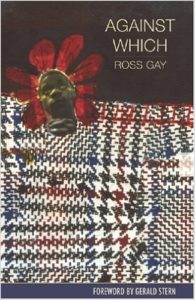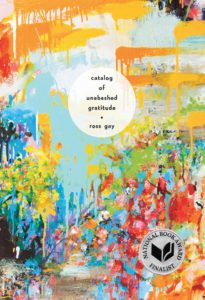Alternate Version of Again by Ross Gay
A formidable contemporary poet, Ross Gay earned his BA from Lafayette College, received his MFA in poetry at Sarah Lawrence, and was granted a PhD in American literature from Temple University. Gay is a founding editor of the online sports mag Some Call It Ballin' and an active editor of the chapbook presses Q Artery and Ledge Mule Press. Aside from educational activity at Indiana Academy in Bloomington, Gay likewise acts as a board fellow member for the Bloomington Community Orchard, a not-profit free-fruit-for-all nutrient justice and joy project.
As the writer of three poetry collections, Against Which (2006), Bringing the Shovel Downwardly (2011), and Catalog of Unabashed Gratitude (2015), Ross Gay has already garnered a remarkable record of achievements and recognition. Gay received grants from the Pennsylvania Council of the Arts and fellowships from both the Guggenheim Foundation and the Radcliffe Found and is a one-time Cave Canem Workshop fellow and Breadstuff Loaf Writer's Conference scholar. This past April, Claremont Graduate School awarded Catalog of Unabashed Gratitude the Kingsley Tufts Poetry Award designed to acknowledge a mid-career poet who is reaching new heights of poetic excellence.
Catalog of Unabashed Gratitudeis a compelling contemplative celebration, a quietly intense and refreshingly apprehensive exploration of the connectivity between cocky, family, and customs. In certain moments, Gay'due south poems human action equally knowing smiles and boring, solemn nods; at others, his verses are instead wry winks. But throughout this subtle collection, the poet portrays the unproblematic simply layered feel of love, the incredible wonder of innocence, and the personal aging that can occur under the harsh pressure of experience. His wistful writings are bawdy, pulpy, and blooming, wild and winding tendrils of words that middle on both the nurturance needed for sheer survival and the overflowing sustenance found in everyday reality. Gay blesses the quotidian with a tone of mature joyfulness, elevating the ordinary to the realm of the sublime with his deft poetic handling.

Just Ross Gay did non achieve this conveyed sense of unabashed gratitude that embraces both the pleasures and hardships of being overnight. In his primeval drove, Against Which, the poet instead presents life's promise and despair as divided, as oppositional. "It Starts At Birth" begins by positioning a "newborn railing" in conflict with the awaiting woes of a life's cycle. The poem so becomes an enumeration of life's crud "against which" its glories are juxtaposed: "the dazzle / of gilt-threaded embroidery inside / the hangman's mask…the blossom / of blood staining the ballerina's toe-shoes, / and the wet eyes of the dog whose lungs are muscled with tumors" (7). Gay insists that like this newborn, our ain railings confronting the horrors inherent in beingness make united states both "impossible, / aureate" and "longing, gone" (8). And in "Thank Yous," Gay urges his readers that despite the fact that "all you dearest will turn to dust…do non raise your fist. Practice not raise / your pocket-size voice against information technology" (71). He recommends that we "Instead…say simply, thanks" (71). Here Gay recommends gratitude in spite of life'due south struggles, whereas his afterward verses call for an appreciation of both the lighter and darker aspects of reality.
In Ross Gay's second drove of poetry, Bringing the Shovel Down, the poetic distance between life's grandeur and devastation has dramatically increased. Interestingly, in the titular verse form and its repeat, Gay presents a ghastly babyhood episode and its revised, restorative version to describe the alternate sides of existence's coin. The poet offers these disparate glimpses every bit two severed, only mirrored, realities. "Bringing the Shovel Downwards" details the ignorant, and therefore innocent, murder of a neighborhood mutt. "Max whimpers, / and the boy sees a wolf where stands this ratty / and sad and groveling dog," and due to this miscomprehension "beneath these very stars / the male child brings the shovel down / until Max'south hind legs finish twitching and his left ear folds into itself" (viii). An innocent, and innocence, is slaughtered as the boy fails to truly see his supposed opponent.

Notwithstanding in "Once again," the canine'due south, and consequently the unnamed boy's, fate is reworked: "Max catches the gaze of the boy who sees, / at last, the raw skin on the dog's flanks, the quiver / of his spindly legs" (60). In this retelling, the once confused child and domesticated, aging fauna manage to find a conciliatory and healing moment of transspecies understanding: "and bringing the shovel down / he bends to lift the meat to Max'due south toothless oral cavity" (sixty). What was in one case a wolf in the boy'southward untrained eyes melts to reveal a decrepit mongrel, harmless and deserving of mercy in place of violence. Only the poet portrays this positive transformative encounter between boy and animate being as an echoed effect entirely divorced from its blood-drenched original.

What makes Ross Gay's eponymous poem from Catalog of Unabashed Gratitude all the more stunning is its co-mingling of appreciation for life's joys and sorrows. Through the eye of Gay's matured poetic lens, even the hurting of reality becomes important. The poet himself confesses: "I desire so desperately to rub the sponge of gratitude / over every last thing [;]" his celebration vocal therefore employs "the whole rusty brass band of gratitude" (93, 82). Alongside lines praising the beauty of robins and orchards, the buzz of bees and the brush of blooms, Gay too thanks the universe "for not taking my pal when the engine / of his mind dragged him / to swig fistfuls of Xanax…[and] for taking my father a few years later his father went down" (84). Afterward blessing the resilience of a centre surgery survivor, "the pacemaker's scar / grin across his chest," and admiring "the quick and gentle flocking / of men to the old lady falling downwards," the poet confronts the relic of a dead companion with gratefulness: "And thanks the baggie of dreadlocks I constitute in a drawer / while washing and folding the clothes of our murdered friend"(87, 89). "Catalog of Unabashed Gratitude," like the verse collection bearing its name, is a sprawling text of thankfulness in which even the harsher portions of existence are reforged as part of the poet's personal prayer of appreciation. The work reflects Gay'southward steadfast refusal to ignore reality'south agonies and his stubborn choice to privilege the thrum of life in its entirety. Information technology calls for gratitude that envelopes both the "singing" and "shuddering" inherent in the human activity of living, for "what do you call up / this singing and shuddering is…other than loving / what every second goes abroad?" (93).
Since 1993, through the Kingsley Tufts Poetry Award, Claremont Graduate Academy has been honoring poets in the middle of their careers who take managed to surpass their beginning promise and cleave out new and captivating artistic territory. Ross Gay is definitely a perfect recipient of such acknowledgment. Grafted onto his already breathtaking command of poetic language, Itemize of Unabashed Gratitude displays his evolving exploration of and appreciation for all of life'southward complexities, its interrelated triumphs and defeats. This reader, for 1, is deeply grateful for Gay'south body of work and is delighted to wait farther developments in his artistic output.
—Brock Rustin
crumrineearelleth.blogspot.com
Source: https://arts.cgu.edu/tufts-poetry-awards/ross-gays-unfolding-understanding-of-unabashed-gratitude-2/
0 Response to "Alternate Version of Again by Ross Gay"
Post a Comment